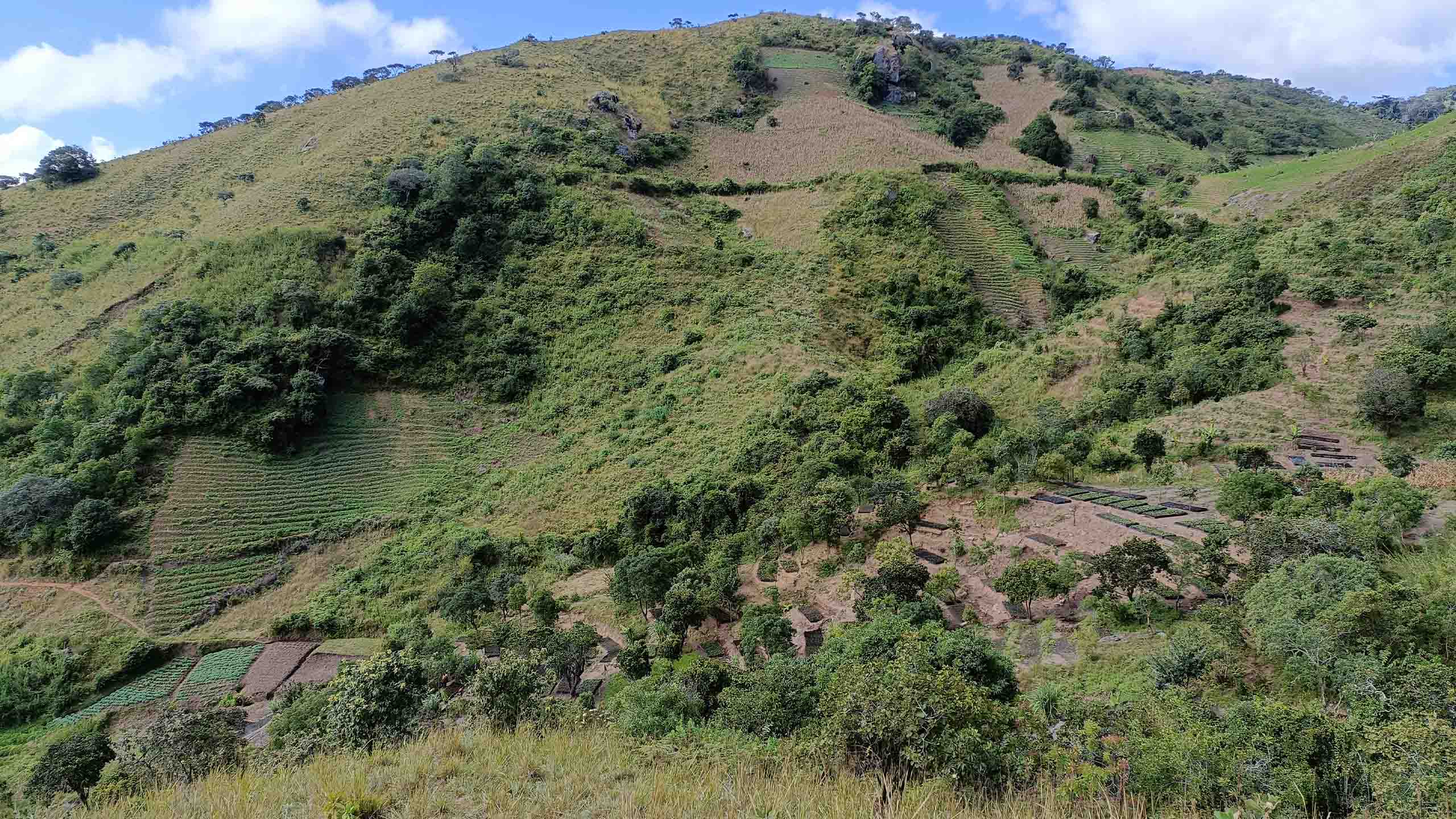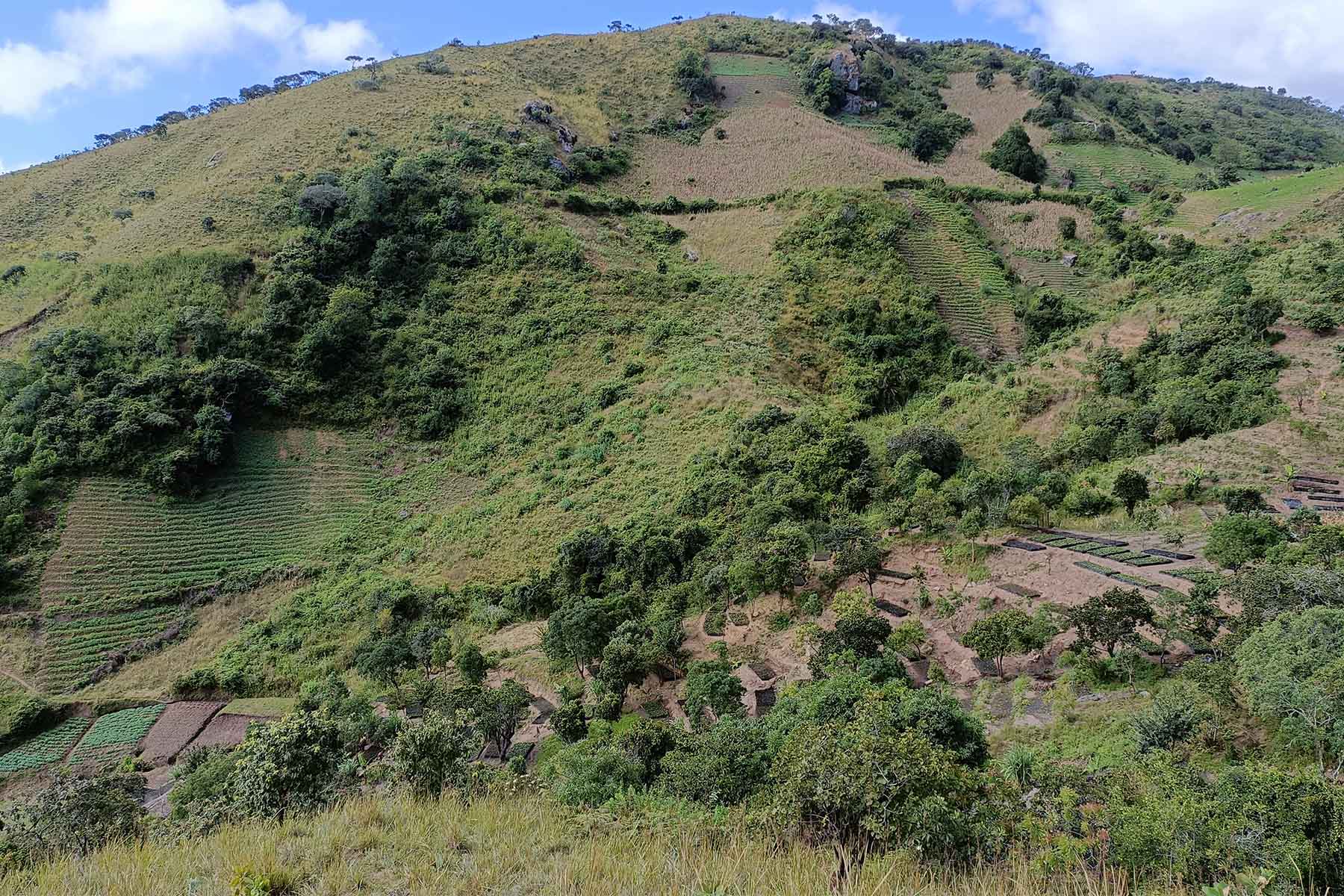Reforestation in
Malawi
Malawi's forests, including savannah woodlands and the Miombo and Mopane forests, are critical for the livelihoods of most of the country’s population. With 97% relying on firewood or charcoal for domestic cooking and heating — and over 80% being smallholder farmers, deforestation is a challenge. Reforestation helps reduce pressure on mature forests, increase access to clean water, and empower young people.
Malawi’s forests are profoundly threatened by deforestation due to agricultural expansion, illegal logging, and charcoal production. These activities lead to significant forest cover loss, soil erosion, and habitat destruction. Climate change worsens the situation, affecting rainfall and increasing the risk of forest fires. Protecting Malawi’s forests is essential for maintaining ecological balance, supporting local communities, and preserving biodiversity.

Malawi Stats
6,000
Flowering plants
Malawi has over 6,000 flowering plant species, of which 122 are endemic, and 248 are threatened with extinction.
Malawi - Country Profile, Convention on Biological Diversity
88%
use firewood
Firewood is the most used cooking fuel (88% of all households), but charcoal is the predominant fuel in urban areas (54%).
National Charcoal Strategy, Republic of Malawi
70%
below poverty line
About 70% of Malawi’s population lives below the international poverty line.
Reducing inequality and poverty in Malawi: Policy analyses and options, UN Trade & Development
84%
population rural
While 84% of Malawi’s population is rural, the country has one of the highest urbanization rates in sub-Saharan Africa (3.7%).
National Charcoal Strategy, Republic of Malawi
38%
Below poverty line
38% of Malawians live below the poverty line.
60%
Of Water
60% of potable water in California is sourced from forested watersheds.
Project Highlights
Reforestation in Malawi requires a balanced approach to reduce pressure on existing forests while meeting the needs of the population; with low-tech developments like installing community wells. Over time, restored forests prevent erosion, improve soil health, lower temperatures, and support diverse ecosystems, fostering sustainable livelihoods and benefiting both people and nature. Learn about two recent reforestation projects that planted trees in Malawi!

Reforestation & Landscape Restoration
This project empowers communities with local jobs and educational opportunities. It hires workers, supports girls' education, and teaches sustainable practices. To help improve soil quality, it provides nitrogen-fixing trees that increase crop yields and offer natural fencing. The project promotes agroforestry and rewards tree planters with fruit trees to boost food security and encourage participation.
Planting Indigenous Trees
This project focuses on planting 100% indigenous forest trees with local communities, and also provides them with water well pumps and fruit trees. The aim is to reduce pressure on mature forests, provide firewood locally, and end the cycle of women traveling long distances for firewood. Additionally, the project will foster ecosystem benefits such as preventing soil erosion, providing firewood, moderating temperatures, and managing humidity.


Hog and Sheep Fire Restoration
This project reforested areas that were impacted by the 2020 Hog and Sheep fires. These high-severity fires heavily damaged local watersheds and habitat areas. Planting trees helped to restore habitat, improve soil stability, and increase carbon sequestration. Seedlings were planted at variable densities depending on slope, aspect, soils, site class, and soil moisture in late winter to early spring.


